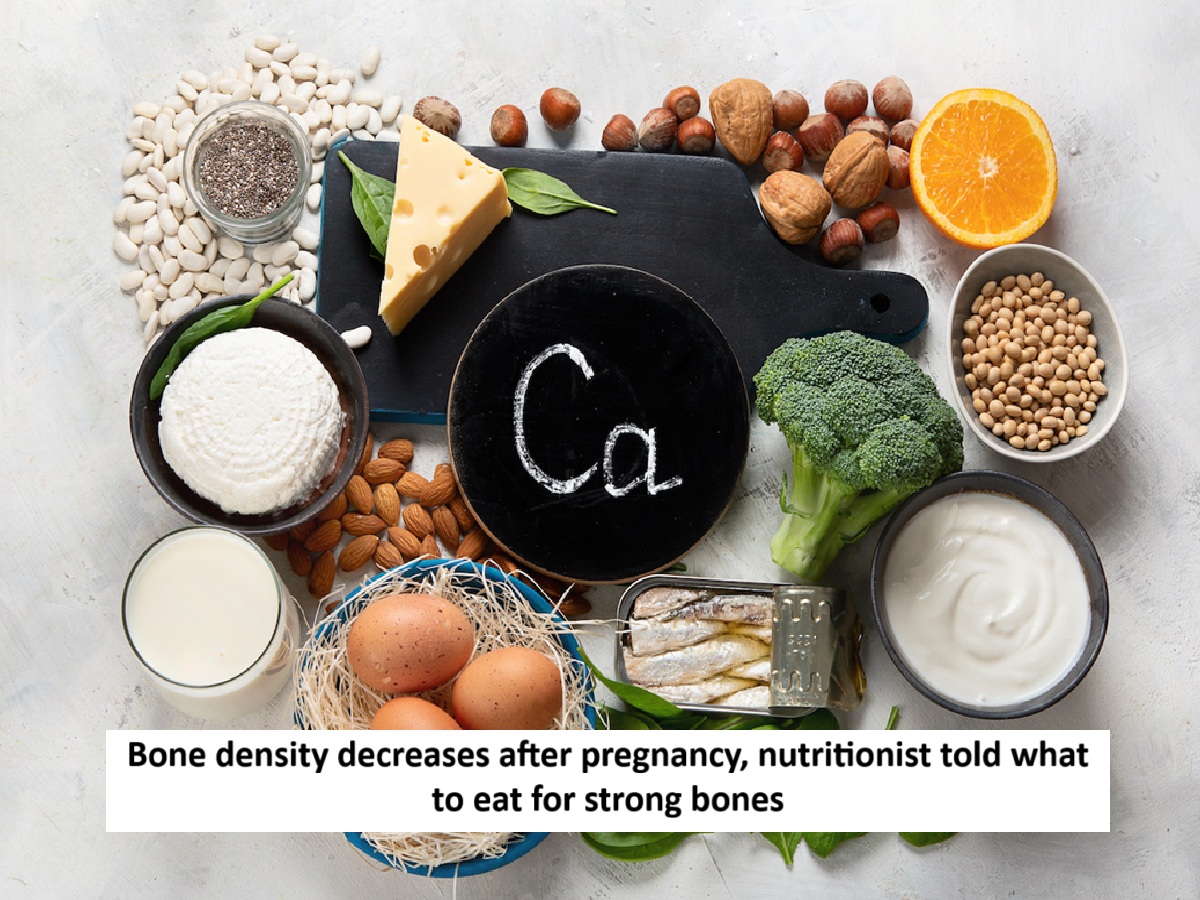
News Topical, Digital Desk : Pregnancy and the journey of becoming a mother bring many changes in a woman's body. In such a situation, while most of the attention is given to weight loss and breastfeeding during postpartum recovery, another important aspect is often overlooked - bone health (Bone Health After Pregnancy).
Yes, the need for calcium in the body increases during and after pregnancy. Due to this the bones start becoming weak. But there is nothing to worry about! The good news is that through the right diet, you can not only compensate for this loss, but can also make your bones stronger than before. Let us know about those nutrients and foods (Foods for Postpartum Recovery) which should definitely be a part of your postpartum recovery.
Why does calcium start decreasing?
Nutritionist, Lavneet Batra says that during pregnancy, about 2-3% of the body's calcium is passed on to the baby. Whereas, during breastfeeding, 300-400 mg calcium reaches the baby directly through milk every day. Along with this, the level of estrogen hormone drops after pregnancy, due to which the bone density can also decrease by up to 3%.
Calcium-rich diet
Calcium is most important for building bones. To overcome its deficiency, include these things in your diet-
- Ragi- Ragi is an excellent source of calcium. Porridge, parathas or idlis can be made from it.
- Sesame seeds- A few sesame seeds contain a lot of calcium. Make laddus of them and eat them mixed in curd or salad.
- Milk and curd- Dairy products are the easiest sources of calcium. Make sure to have a glass of milk, a bowl of curd or buttermilk daily.
- Green leafy vegetables – Spinach, broccoli, and amaranth are also rich in calcium.
Protein and Phytoestrogen
Foods rich in protein and phytoestrogen are beneficial in reducing the effects of decreased estrogen.
- Soy and Tofu – Soybeans, tofu and soy milk contain compounds called isoflavones, which have estrogen-like effects in the body.
- Flax seeds – These are a storehouse of omega-3 fatty acids and lignans, which are helpful in hormonal balance.
- Pulses and nuts – Gram, moong dal, almonds and walnuts are good sources of protein , which is necessary for bone repair.
Vitamin K and Magnesium
Calcium doesn't work alone. It needs other nutrients to be properly absorbed by the body and stored in the bones.
- Vitamin K- It binds calcium in the bones. Include green leafy vegetables like spinach, fenugreek, mustard greens and moringa in your diet.
- Magnesium- It strengthens bones. Pumpkin seeds, almonds, cashews and bananas are excellent sources of magnesium .
vitamin D
Without vitamin D, no matter how much calcium you consume, it cannot be absorbed properly.
- Sunlight- Morning sunlight is the best and natural source of vitamin D. It is important to take sunlight for 15-20 minutes daily.
- Diet – Include egg yolk, fatty fish, and vitamin D fortified foods in your diet.
--Advertisement--

 Share
Share



